Ginkgo Biloba
 Ginkgo biloba is an herb that has been used in traditional Chinese medicine for thousands of years. Today it is used to treat a range of health conditions and is a popular herbal medication in the US and Europe. Taken regularly, Ginkgo biloba can improve circulation, mood, and mental performance. Ginkgo biloba is an herb that has been used in traditional Chinese medicine for thousands of years. Today it is used to treat a range of health conditions and is a popular herbal medication in the US and Europe. Taken regularly, Ginkgo biloba can improve circulation, mood, and mental performance.
Background and History of Ginkgo biloba
Native to China, the Ginkgo biloba tree is one of the oldest living tree species in the world, dating back over 200 million years. Seeds from the Ginkgo biloba plant, as well as its leaves, have been used in Chinese herbal medicine for centuries.
Ginkgo biloba Etymology (Name Origins)
 The name Ginkgo comes from the Chinese word y�nx�ng meaning �silver apricot.� It�s believed that when the Ginkgo tree was introduced to Japan from China, it was pronounced Ginky?. When the Ginkgo tree was later introduced to Europe by Engelbert Kaempfer, his writing was apparently misread and so the y became g. This spelling has been used ever since. The name Ginkgo comes from the Chinese word y�nx�ng meaning �silver apricot.� It�s believed that when the Ginkgo tree was introduced to Japan from China, it was pronounced Ginky?. When the Ginkgo tree was later introduced to Europe by Engelbert Kaempfer, his writing was apparently misread and so the y became g. This spelling has been used ever since.
Different Names of Ginkgo biloba (Synonyms)
Ginkgo has many different and the name used will often depend on which country you live in. The most common names are:
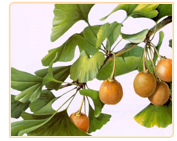 • Ginkgo • Ginkgo
• Japanese silver apricot
• Maidenhair tree
• Kew tree
• Yin Guo Ye Wan
• Bai Guo Ye
• Yin Xing Tong Ye
• Fossil tree
• Yinhsing (yin-hsing)
How Does Ginkgo biloba Grow?
The Ginkgo tree grows best in temperate climates with sandy, well-drained soil conditions. The Ginkgo tree is extremely resistant to pollution, pests, and disease, and each tree can live as long as 1000 years. The Ginkgo biloba plant has short branches and bears inedible, potent fruits. Because it is a deciduous plant, it sheds its leaves and fruits during the fall.
What Does Ginkgo biloba Look Like?
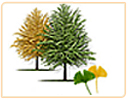 The Ginkgo biloba tree is very tall and slender and is usually green or yellow with a bark that is reddish brown. Ginkgo leaves are a unique fan-shape and have parallel veins running through them. Only the female Ginkgo plant grows fruit, which is oval-shaped, up to 1 inch in diameter and slimy. Once the smelly pulp is removed the fruit is washed and sun-dried. The Ginkgo biloba tree is very tall and slender and is usually green or yellow with a bark that is reddish brown. Ginkgo leaves are a unique fan-shape and have parallel veins running through them. Only the female Ginkgo plant grows fruit, which is oval-shaped, up to 1 inch in diameter and slimy. Once the smelly pulp is removed the fruit is washed and sun-dried.
Click on the following link to read more about the Ginkgo biloba plant, or continue reading below to learn about how Ginkgo works.
How Does Ginkgo biloba Work?
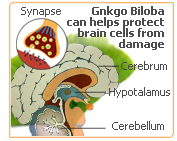 Ginkgo is a brain stimulant that can help improve memory capacity and support cognitive function. It is a popular herbal remedy because of its beneficial effects in relieving some menopausal symptoms. Ginkgo is a brain stimulant that can help improve memory capacity and support cognitive function. It is a popular herbal remedy because of its beneficial effects in relieving some menopausal symptoms.
The chemicals found in Ginkgo leaves work as antioxidants, reducing the number of damaging particles in the body that can cause serious conditions such as cancer. Because Ginkgo is a phytoestrogen herb, it contains vegetable substances with a similar chemical structure to estrogen, and therefore restores hormone imbalance.
Ginkgo biloba Properties
Ginkgo leaves contain the chemicals flavonoids and terpenoids which scientists argue have powerful antioxidant properties. Antioxidants are useful because they neutralize free radicals (damaging particles which the body produces naturally).
By reducing the number of free radicals, Ginkgo biloba helps to boost circulation. This is good news for women during menopause because they are more likely to suffer from circulatory problems.
How Ginkgo biloba Works on the Body
Ginkgo benefits menopausal women in two ways:
Firstly, Ginkgo reduces the number of free radicals (damaging particles) in the body which improves blood flow to the brain and can ease some of the symptoms of menopause, such as memory lapses.
The second way Ginkgo biloba works together with the body is by raising estrogen levels. Because Ginkgo contains phytoestrogens (vegetable substances with a similar chemical structure to estrogen) it raises hormone levels by replacing human hormones with plant substitutes.
Click on the following link to read more about how Ginkgo biloba works, or continue reading below to learn about the uses of Ginkgo.
What is Ginkgo biloba Used For?
 Ginkgo biloba has been used in Chinese herbal medicine for centuries to treat ailments such as bronchitis, asthma, coughs, high blood pressure, and headaches. Today, Ginkgo biloba is most commonly used for its memory and circulatory benefits. Ginkgo biloba has been used in Chinese herbal medicine for centuries to treat ailments such as bronchitis, asthma, coughs, high blood pressure, and headaches. Today, Ginkgo biloba is most commonly used for its memory and circulatory benefits.
Modern Day Uses
Today, Ginkgo biloba is generally used in the form of a concentrated, standardized leaf extract known as Ginkgo biloba extract (GBE). GBE comes in various forms such as Ginkgo tea, extract, Ginkgo powder and skin products.
Ginkgo is a brain stimulant that improves memory capacity, enhances concentration and increases strength, also it is used as a herb for menopause. Ginkgo is also known as a tonic herb - one that restores balance to the body.
How Ginkgo biloba Works
Ginkgo biloba boosts blood flow to the brain and improves concentration and cognitive function, which is important for menopausal women who often suffer from memory lapses.
Ginkgo is an antioxidant and it helps to reduce the number of damaging particles that can lead to serious conditions such as cancer. Below is a list of other disorders that can be alleviated by taking Ginkgo biloba:
• Tinnitus
• Reynaud's disease
• Intermittent claudication
• Poor mood
• Loss of libido
• Sleep disturbances
• Macular degeneration
Different Ginkgo Products: Ginkgo is sold in different forms including: Tea, extract, powder and skin products.
Ginkgo biloba as a Replacement for HRT
 Adverse side effects from hormone replacement therapy (HRT) are prompting many women to choose herbal remedies instead. Because Ginkgo contains phytoestrogens, plant chemicals which act in a similar way to estrogen, it raises hormone levels and many claim it may be an appropriate substitute for HRT. Adverse side effects from hormone replacement therapy (HRT) are prompting many women to choose herbal remedies instead. Because Ginkgo contains phytoestrogens, plant chemicals which act in a similar way to estrogen, it raises hormone levels and many claim it may be an appropriate substitute for HRT.
However, some scientists question the safety of the Ginkgo biloba herb because women taking Ginkgo may be prone to developing breast cancer and other conditions because it contains phytoestrogens.
Ginkgo Dosage
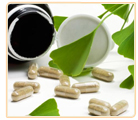 The dosage of Ginkgo will depend on the patient�s needs. It�s always best to speak to a doctor or pharmacist before taking Ginkgo. It�s also important to follow the dosage instructions provided on the products packaging. The dosage of Ginkgo will depend on the patient�s needs. It�s always best to speak to a doctor or pharmacist before taking Ginkgo. It�s also important to follow the dosage instructions provided on the products packaging.
The average daily dosage of Ginkgo biloba is generally between 40mg and 240 mg, split into two or three doses. Ginkgo seeds are toxic and should not be consumed.
Ginkgo Overdose
A doctor or healthcare professional should be contacted in the case of an overdose. Overdosing on Ginkgo can result in symptoms such as:
 • Nausea and vomiting • Nausea and vomiting
• Cramps
• Restlessness
• Sexual dysfunction
• Irritability
• Diarrhea
Click on the following link to read more about the uses of Ginkgo biloba, or continue reading below to learn about the benefits of Ginkgo.
Ginkgo biloba Benefits
Because of its beneficial effects in relieving circulatory and memory disorders, more menopausal women are using Ginkgo biloba. Ginkgo is also a reasonably safe and cost-effective remedy.
Overall health benefits
Most of the benefits of Ginkgo biloba are related to its ability to boost blood flow to the brain and other major organs. Improved blood flow can alleviate some symptoms of menopause, such as memory lapses and low strength and energy levels. Also there are specific benefits related to some ailments:
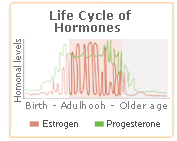 • Hormonal problems: Numerous studies show that Ginkgo biloba has estrogenic activity and is a suitable alternative to hormone replacement therapy (HRT). Yet, many health experts believe that non-estrogenic herbs are safer because they encourage the body�s own production of hormones and do not have side effects. • Hormonal problems: Numerous studies show that Ginkgo biloba has estrogenic activity and is a suitable alternative to hormone replacement therapy (HRT). Yet, many health experts believe that non-estrogenic herbs are safer because they encourage the body�s own production of hormones and do not have side effects.
• Alzheimer�s: Because of Ginkgo biloba�s ability to boost blood flow, it is used to alleviate the symptoms of early-stage Alzheimer�s and dementia.
• Osteoporosis: Ginkgo biloba extract (GBE) can slow down the aging process and could help alleviate the symptoms of osteoporosis.
Click on the following link to read more about the benefits of Ginkgo biloba, or continue reading below to learn about its side effects.
Ginkgo biloba Side Effects
The side effects of Ginkgo biloba vary depending on the individual consumer, their dosage, and medical history. It�s always advisable to discuss herbal and diet supplement intake with a doctor or pharmacist first, particularly because certain types of medication can interfere with Ginkgo.
Seek medical help if any of these symptoms occur after taking Ginkgo:
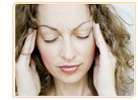 • Stomach upset • Stomach upset
• Nausea
• Diarrhea
• Headache
• Fainting
• Speech problems
Interactions between Ginkgo and health conditions
• People with epilepsy or a history of seizures should avoid taking Ginkgo biloba.
• People with diabetes should only use Ginkgo biloba after consulting a physician because Ginkgo leaf extract can affect blood sugar levels.
• If there is a history of allergies to foods, dyes, or preservatives it�s best to speak to a doctor before taking Ginkgo.
• People who have scheduled surgery and dental procedures should discuss Ginkgo usage with a doctor prior to use, as should pregnant women.
• Ginkgo biloba can be used to relieve some menopause symptoms but it can also cause undesirable effects.
Fresh Ginkgo seeds should not be consumed. Roasted seeds can be eaten but may cause side effects such as diarrhea, nausea, vomiting, indigestion, or allergic skin reactions.
Click on the following link to read more about Ginkgo biloba side effects, or continue reading below to learn about Ginkgo biloba as a treatment for menopause symptoms.
Ginkgo biloba and Menopause
There are various ways that Ginkgo biloba helps menopausal women.
The first benefit is that Ginkgo reduces the number of damaging particles in the body, boosting blood flow and easing circulatory disorders which are often problematic for menopausal women.
The second benefit of Ginkgo is raising estrogen levels in the body. During menopause estrogen levels decrease and many believe this contributes to a number of menopausal problems, particularly related to memory performance.
Ginkgo biloba also helps women looking for relief from ailments related to menopause such as:
 • Osteoporosis • Osteoporosis
• Tinnitus
• Intermittent claudication
• Poor mood
• Loss of libido
• Sleep disturbances
• Macular degeneration
However, despite the beneficial effects of Ginkgo biloba, many scientists question the safety of Ginkgo biloba. Health experts believe that non-estrogenic herbs are safer than phytoestrogenic herbs such as Ginkgo biloba because they encourage the body�s own production of hormones, and do not introduce external hormones into the body. Furthermore, non-estrogenic herbs do not have side effects. Also, females taking Ginkgo may be prone to developing breast cancer and other conditions because it contains phytoestrogens.
It is important to seek the advice of a medical professional before starting a course of Ginkgo biloba during this period. Click on the following link to read more about Ginkgo bilboa and menopause.
Conclusions about Ginkgo biloba
Ginkgo is beneficial for treating some menopause symptoms, but is often criticized because it adds artificial hormones to the body. This can lead to side effects and serious conditions such as breast cancer.
Many health professionals favor non-estrogenic herbs as they are as effective as Ginkgo but do not produce side effects, and treat many menopausal symptoms. Read more about non-estrogenic herbs in the following article.
Which herb should women try? Today women are looking for relief from their menopause symptoms with herbs. Phytoestrogenic herbs and non-estrogenic herbs are good in relieving menopause symptoms, but recent studies show that non-estrogenic herbs have no side effects because they help the body to produce its own hormones instead of introducing hormones like the phytoestrogenic ones. Learn more about non-estrogenic herbs for menopause.
| 

